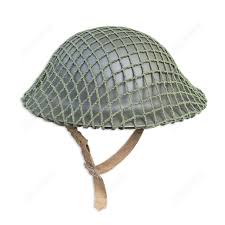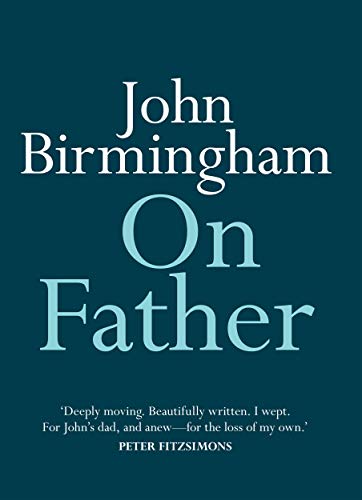
The other day I was at the VA hospital when I saw a remarkable sight, an elderly gentleman with a hat. It said “World War II,” “Battle of the Bulge,” “Stalag 48.” Wow. He must have been a minimum of 94 or so. The sight gave me inspiration for a short story based in the far future of John Birmingham’s Axis of Time novels.
Here goes.
The end of the circle
J. Lambright
Tom Perkins was dreaming once more. He had been born in the dark heart of a war that never happened, he had travelled through time into one that had. The Pacific sunlight shone upon his tired, closed eyes yet again, he slumbered in his wheelchair upon the black deck of the ship he had once called his home. The scarred old brute of a machine rested at anchor, she was a floating museum, the storied survivor of countless campaigns.
In a time he barely remembered, Tom Perkins had been a young kid straight out of Pensacola, a wet behind the ears A130, an aviation structural mechanic. He had been assigned to this ship, the USS Hillary Clinton, the “Big Hill,” for his maiden cruise. He vaguely remembered the hot wash and disorientation of the Transition, the shock, the fire and the panic that followed afterward. He had been among humanity’s first time travelers, and as far as he knew he was one of the few alive who could still tell the tale.
He was half-awake while people gathered for this commemoration in his tiny group’s honor. Eighty years ago today the Multinational fleet had appeared in this universe, and he was one of the distinguished guests. There were a mere handful of survivors there, so many had gone before him. They were the only ones who could really know what it was like to wake up in the future, and go to sleep in the past.
Tom opened his eyes and looked around. He was seated on a platform, his great-granddaughter Anna sat beside him. She had been born before he was; he always got a kick out of that. He glanced over at her, resplendent in her Navy whites. He nodded. He had struggled into his best suit that morning; his grandson had helped him. The love of his life, Dorothy “Dot” Forrest, born 1924, had passed five years before aged 93. Tom sighed. So many memories, they were all he had left.
His near-century had been filled with bewildering change, he couldn’t remember the last time he had smelled vehicle exhaust from a combustion engine, a stink he well recalled from his adolescence, a decade before. Eighty years before. Even after all these years, it confused him. Filled him with wonder.
And here he sat, at this anniversary, one of the very few scattered survivors of two world wars and the forever war on terrorism that had never happened. He wore its honors nonetheless. He looked down at his chest, Anna had pinned on his ribbons on this morning. They were as familiar as his spotted, gnarled right hand. The sunburst Transition badge; along with others. The ribbons themselves. So many. He had been a career man. His eye caught a few. A Bronze Star. A Navy Commendation Medal with V device. The sky-blue Global War on Terrorism Expeditionary Service Medal. Asia-Pacific Service. World War Two Victory. The scarlet red World War Three medal. So many. So much time.
Someone was speaking, the assembled crowd settled down. His thoughts drifted once more. He was on leave, the Big Hill was being retrofitted; it must have been 1943. He was in his sailor’s whites. Tom smiled at the memory; so much was a novelty back then. Travelling cross-country on an actual steam train. He remembered the hard wooden benches, the braces of men in coarse brown woolen dress uniforms. The questions. The trepidation. The card games when the men from the past found out he was a regular Joe like them. Sort of. He kept his E-reader hidden.
Many years later, he frowned at a memory. He went to visit his hometown while on leave, to see if he could track down any family. When the train arrived at Steubenville station, he was at a loss for what to do, where to go. He had no idea how to get to Mount Pleasant, where he suspected his great-grandparents lived. He remembered feeling totally lost, devastated and bereft, as he looked around.
Jesus.
A voice had saved him, back then.
“Hey sailor, you need a ride?”
It was a middle-aged man with a black Chevy sedan. The fellow had looked him up and down, he saw the “USS Hillary Clinton” patch on the right sleeve of his whites. The man’s eyebrows climbed a notch, but he said nothing. Tom nodded.
“Hate to be a bother, sir.”
“I remember what it was to come home, I was in the Great War.”
Tom shook his head. “I don’t know if I am home, sir.” He felt tears welling up, his knees buckled at the sight of the altered skyline of the county seat. His whole family; gone. Replaced by strangers dead before he was born.
“Yeah, you’re in a fix, son. Name’s John Forrest, I work the ticket counter here. You have family to go to?”
“Supposedly. In Mount Pleasant, maybe. But I don’t know them.”
The man nodded and pulled out a pipe and packed it. “So it’s true, you’re one of those soldiers from the future.”
“Yeah.”
The mustached man shrugged and lit up. “Well, from what I gather you people still eat. You’re probably hungry. Why don’t you come with me, I’ll see if we have an extra spot at my table.”
Tom hesitated. “Sir…”
John tossed his head towards the Chevy. “Come on, it isn’t a bother. Really, I insist.”
What the hell, why not, Tom thought back then. He shouldered his duffel bag and climbed in.
Ancient Tom, seated in his wheelchair, smiled once more. That had been the luckiest meeting of his life. When he had gotten out of that Chevy at the Forrest residence, the first person he saw was a beautiful brunette with victory rolls in her hair. Mr. Forrest’s daughter. She would be his wife, his anchor point, the mother of his children.
He shed a tear. His great-granddaughter, who favored Dot in her looks, glanced over at him and spoke in a hushed voice.
“Grandpa, are you alright?”
He reached over, patted her hand and spoke. “I’m fine, my dear. I just wish Dot was here, that’s all.”
Anna smiled. “We all do, Grandpa.”
The speaker said something, Tom wasn’t paying attention; he was remembering the time Dot came out to San Diego, before he returned to the Pacific in ’44. They married; she saw the ocean for the first time. She returned home pregnant when he had shipped back out, he saw his firstborn when the war was over. Anna, the eventual result of that coupling, spoke in his ear.
“Grandpa, can you stand? They’re going to play the Anthem.”
He didn’t know if he could, but he would damn well try. “Help me, Anna.” She stood before him, she held out her hand. He took it and willed himself upward; he strained with all of his nearly extinguished strength. With a grunt, he stood. Anna looked at him, her head tilted. He nodded to her. He could do this. She stood aside and faced the flag, along with the others.
The music played.
Tom Perkins saluted the colors beneath the azure Pacific sky.
It would be the final time.




